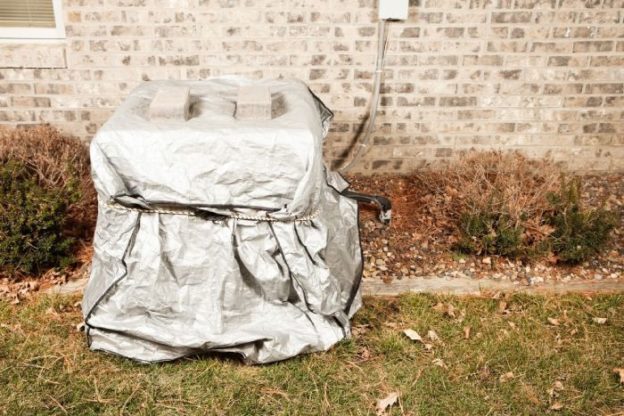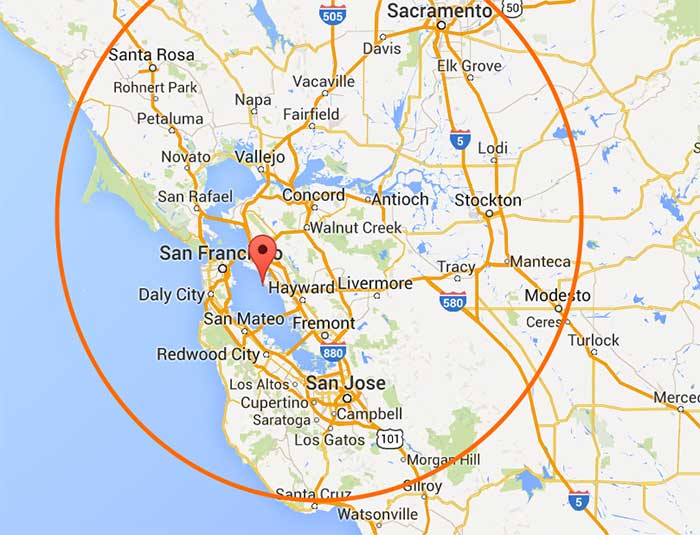Winter weather in the Bay Area is an unpredictable mix of heavy rain and strong winds. This sort of powerful weather can damage an outdoor air conditioning unit more than many people realize. The A/C units we install at Element Home Solutions are built to handle inclement weather, but why expose your investment to more stress than you have to? You likely won’t use your A/C unit when the temperature drops, so give your outdoor unit some winter protection.
How to Protect your A/C Unit from Winter Rain
If you live in an Oakland, San Jose or other Bay Area home with central air conditioning that you won’t be using this winter, follow these tips to avoid the dangers of leaving your air conditioner exposed to the elements.
1. Keep Your Unit Covered and Protected
The first step in protecting your air conditioner from winter rain is to keep the unit covered. Dedicated covers likely came with your unit, but a simple tarp with proper strapping can also provide winter protection from most of the rain and debris that comes with Bay Area winter storms. But also keep away from your unit lawn furniture, decorations, and anything else that could be blown around by a strong wind. And, have your trees grown to the point where a falling limb could land on your unit?
2. Disconnect Your A/C Unit
Since you probably won’t need your Bay Area HVAC unit for the next few months, you should shut it down and cover it up. You can cut the power to your unit with the circuit breakers, or you can simply turn off your cooling options with your thermostat.
3. Secure Your A/C Unit
One of the dangers of leaving an air conditioner exposed to the elements is the possibility that the unit itself could be damaged by inclement weather. To prevent this from happening, check to see that all of the bolts that hold your unit in place are tight and in good condition. Take a minute to inspect the concrete pad and/or metal stands your AC unit may be secured to. Are they still in good condition? If you see cracks in concrete, a lot of rust in metal supports or similar damage, give us a call to inspect it.
4. Protect Any Wires
While winterizing your AC unit against wind and rain, inspect the wiring between the unit and electrical outlets. Are they in good shape? No fraying or exposed wires? Insulated wires are usually safe from the elements, but they can accumulate damage over time if they aren’t maintained.
Never Neglect Air Conditioner Maintenance!
In effect, preparing your HVAC system for winter involves both inspecting the furnace to get it ready to heat your home properly, and inspecting the AC unit before taking it offline. Make regular air conditioner maintenance a habit! Contact us to schedule your inspection.
Leaving an air conditioner exposed to the elements during a Bay Area winter can accelerate aging. Protect your investment by catching any issues that need to be addressed before they get any worse!







